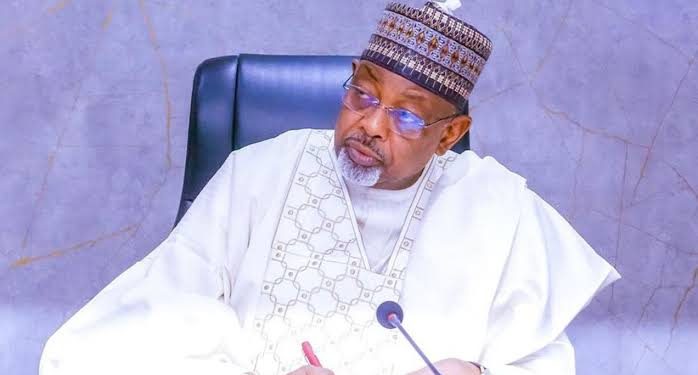The Federal Government has unveiled plans to generate about ₦160 billion from wheat production in the 2025/2026 dry season as part of a broader national effort to strengthen food sovereignty and reduce Nigeria’s heavy dependence on wheat imports. The announcement was made in Jere, Borno State, during the launch of the subsidised input distribution for the new wheat season under the National Agricultural Growth and Agro-Pocket Project.
The government confirmed that 40,000 hectares have been earmarked for the program and 80,000 farmers registered nationwide. The projected output is expected to deliver wheat valued at ₦160 billion by the end of the season. Borno State will play a significant role with 3,000 hectares allocated and 6,000 farmers registered to participate.
According to the ministry, the initiative builds on the gains of previous dry-season programmes. The 2023/2024 season supported over one hundred thousand farmers and delivered output valued at more than ₦470 billion, while the 2024/2025 season supported over two hundred thousand farmers with output valued at nearly ₦900 billion. The new season aims to improve on these results by tightening input delivery systems and ensuring that only certified seeds, traceable fertilizer blends and approved crop protection products reach farmers.
The ministry noted that Agricultural Extension Agents will be deployed across the country to guide farmers on modern agronomic practices, while officers responsible for fertiliser and seed quality will monitor compliance with national standards. The ministry stressed that the strength of any farming season depends on the quality of inputs delivered to farmers and emphasized that yields cannot be achieved without certified seeds and accurate fertilizer blends.
Wheat production under the programme will cover sixteen states in the northern region and middle belt, with the inclusion of Cross River State marking the first expansion of wheat cultivation into the south. The ministry added that the programme is designed to be socially inclusive by ensuring that women and young people have equitable access to inputs, training and opportunities.
During the launch, the Borno State Government commended the Federal Government for sustaining investment in irrigation and dry-season farming, describing the programme as a significant part of the state’s agricultural revival. The state government reiterated its commitment to all-season farming through irrigation infrastructure, machinery, improved seeds and agro-inputs, highlighting the resilience of local farmers despite years of insecurity, displacement and climate-related challenges.
Farmer representatives at the event pledged to scale up production in support of the national agricultural agenda, promising that smallholder farmers are ready to expand their output under the new programme. The event concluded with the distribution of subsidized inputs to farmers across the state, signaling the official start of the new wheat season.










